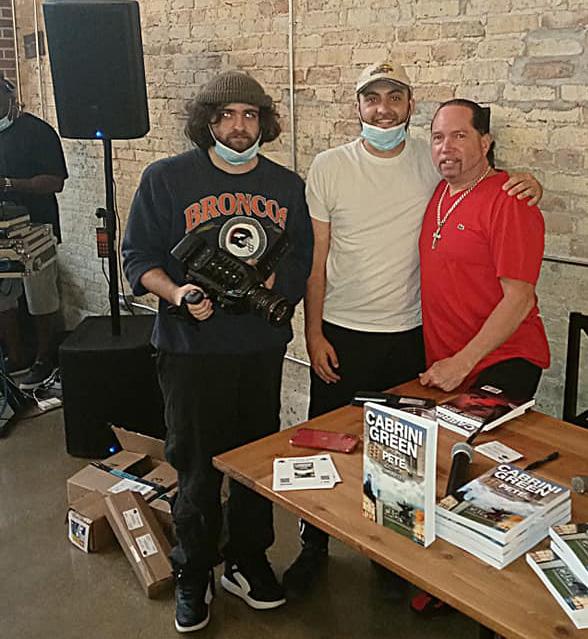
3 minute read
Activist recalls life as gangbanger in cabrini-green in new book
by Octavio Cuesta De la Rosa
Not much is left of the Cabrini-Green public housing development, and even less of the gangbangers that ruled their hallways years ago. The high rises have long since been torn down, replaced by schools, sports fields and upscale modern condos. Yet the very name “Cabrini- Green” still holds a powerful place in Chicago’s vernacular with an unparalleled notoriety. Pete Keller was a part of it, and in his newest book, “Cabrini-Green: The Pete Keller Chronicles,” Keller takes the reader on an unvarnished journey through the structures of drugs, violence, love and loyalty of the 1980s.
A closer-than-usual brush with death in the winter of 2005 forced the then 35-year-old gangbanger to dedicate his life to grassroots organizations that could change his community for the better. For 15 years Keller has been a pillar of his community, reporting for Voices of Cabrini, negotiating the project’s inevitable demolition and organizing with United League One Nation to help former gang members leave and find a new life. As the neighborhood steadily gentrified and its former gangbangers took their tales to the grave, Keller knew he had to immortalize the true stories of Cabrini-Green before it was too late.
Attracted to the lawlessness and impulsiveness of Cabrini- Green, a young Keller found an ironically structured and loving community in the ranks of the Gangster Disciples that ruled the projects. Structures of loyalty and love for their fellow Disciples, and of respect for rival territories and colors, provided Keller with the after-school direction he sought. Keller soon began selling “Blue Velvet” for the Disciples in the gang-regulated hallways. People of all walks of life came to buy the drug to fight the pain and despair of their daily lives. The gang members sold for the ray of hope the money gave them, not knowing they were trapped in a vicious cycle.
Having perpetuated the cycle, and then broken free from it, Keller leaves the youth of today two valuable lessons. The first is the need for structure in life. The second is the need for love in life. Both are key reasons why he joined the Gangster Disciples. On a single day when he was 6 years old, he learned that he was adopted and that his parents were getting a divorce. He moved all over – Hyde Park, Oak Park, Lakeview, Englewood – with his mother, and snuck out of his second story window at night.
Finding a structure of codes and loyalties as an after-school gangbanger allowed Keller to have a semblance of order and belonging, within a hierarchy that rewarded him with money and clout. Love figured in the form of close friends and fellow gangbangers who shared the same streets and values of honor and loyalty.
Keller warns us, however, that the love and structure that one finds in the “thug life” is a false love. This is because at the core of the structure is a drug trade that lures young gang members with money and the drugs themselves. In exchange for selling drugs and generating income for the gang, the structure of the organization recognizes and rewards the work of young gang members, creating a sensation of love and belonging through an exploitative structure, creating the false love that Keller recognizes.
Keller’s greatest lesson to the younger generation is to develop a structure for one’s life without these exploitations. Today, Keller works with grassroots organizations such as United League One Nation and other big-brother associations to provide love, support and structure to at-risk youths. His lesson is not limited to the youth of today either, as these same organizations are also there to help the parents of at-risk youths, such as single parents who are unable to provide the necessary structure and love a child needs while they’re away at work.
Octavio Cuesta De la Rosa is recent graduate of the University of Illinois at Urbana/Champaign, where he majored in history and minored in French and urban planning. He volunteers with the U.S. Naval Sea Cadet Corps.








